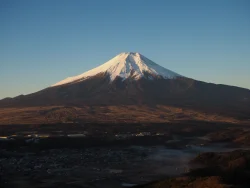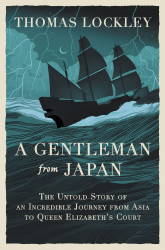
July 28, 2011
Silent Death
Polish director Jerzy Skolimowski tackles a political subject with very few words
By Metropolis
Originally published on metropolis.co.jp on July 2011

Polish director Jerzy Skolimowski doesn’t believe in giving too much information to audiences. His latest film, Essential Killing, is full of political overtones, but it isn’t a political movie, says the 73-year-old veteran director and painter. The film opens with a desperate character (played by Vincent Gallo) killing three American troops with a bazooka in a desert canyon. Before long, he is captured and transported to a secret US prison near an airbase in a European country. While he is being moved one night, the vehicle carrying him slides off an icy road and crashes, allowing him to escape. From then on, he becomes a hunted animal.
“I wanted to tell a story about a guy who was shackled, barefoot, and on the run in a snowy landscape,” Skolimowski explains. “I didn’t pay any attention to background. So the opening sequence—is it Afghanistan, Iraq or Pakistan? It doesn’t matter. Is the guy a Taliban or a terrorist? That doesn’t matter either because this is a story of a man who is changing from a human being into a wild animal.”
It’s understandable that Skolimowski didn’t want to make an overtly political film. He got into deep water when he made Hands Up! in 1967, which was banned in Poland for 10 years. “It practically ruined my life because, as a result of its anti-Stalinist themes, I was forced to emigrate,” says Skolimowski, who hails from Lodz. After spending more than 20 years in London and Los Angeles, he returned to Poland in the mid-2000s and made a critically acclaimed film, Four Nights With Anna.
Skolimowski says this project came to him about two years ago. “I was aware of the fact that less than ten miles from my home in the forest is a secret military airstrip where apparently CIA planes were bringing prisoners from the Middle East. I sensed there was a movie in it but I was reluctant to touch a heavy political subject. One winter night, I was driving back home on an icy road and my car nearly slid into a ditch. This is most likely the road the military convoys were using to transport prisoners, and if I could nearly go off the road, then so could they, and I could imagine a prisoner in orange overalls being thrown out. So I had my story.”
Though he didn’t want to stray too far from home, Skolimowski had to. “I filmed it in Poland, Israel and Norway. I needed a lot of snow and that’s why we went to Norway. It was a tough shoot there, minus 35 degrees,” he says. Working with Gallo was a challenge, the director admits. “He is very eccentric, but very intelligent. He is very tense and above all, a method actor. What counts is the result and the result is phenomenal. He sensed the challenge of no dialogue.”
Essential Killing won awards at film festivals in Poland, Venice and Argentina last year.
Skolimowski has high hopes for Japan. “My films have been very well received in Japan,” he says. Skolimowski says he will return to his forest retreat in Poland to paint. He’s in no hurry to make another film. “The Polish film industry is in good condition,” he says. “It is easier to get financing than before, and the industry makes about 50 feature films a year, nearly half by first-time directors.”
- Chris Betros is the editor of Japan Today (www.japantoday.com).







